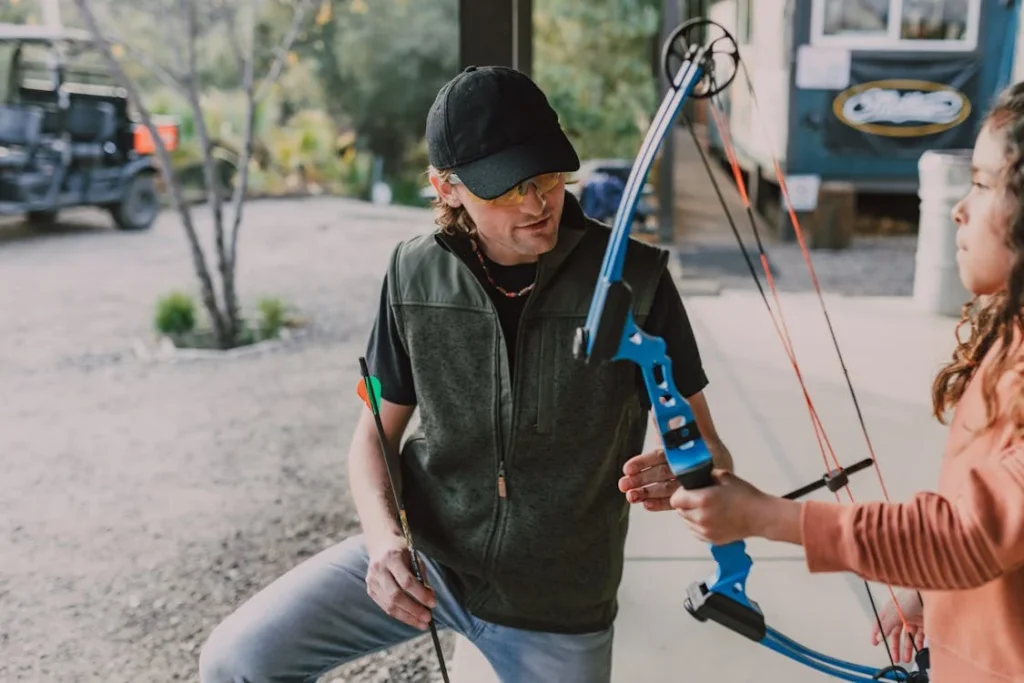When a child experiences limb loss, it is not just a physical change—it is an emotional journey for both the child and the family. As a parent, you want to protect your child from pain and struggles, but you may also feel uncertain about how to support them emotionally. It is normal to have fears and questions about how your child will adapt, how others will treat them, and what their future will look like.
The good news is that children are incredibly resilient. With the right emotional support, they can grow up feeling strong, confident, and capable. Your role as a parent is not just to help them adjust physically but to guide them emotionally, so they see themselves not as limited, but as whole.

Helping Your Child Process Their Emotions
Losing a limb or being born without one can bring a mix of emotions for a child. Depending on their age and personality, they may feel confusion, sadness, frustration, or even anger.
Some children may not fully understand what has happened, while others may struggle with fears about how their life will change. As a parent, your response to their emotions plays a crucial role in shaping their mindset and helping them adjust.
Creating a Safe Space for Expression
Children need to know that whatever they are feeling is okay. Encouraging them to talk about their emotions without fear of judgment can help them process their experience.
If they are too young to express their feelings in words, they might show signs of frustration through changes in behavior. They may withdraw, act out, or have difficulty sleeping.
Instead of dismissing these reactions, gently acknowledge what they might be feeling. Saying things like, “I know this is really hard for you,” or “It’s okay to feel upset,” reassures them that their emotions are valid.
Some children may not open up immediately, and that is completely normal. Creating a calm and supportive environment where they feel safe can make a difference.
Activities like drawing, storytelling, or even playing with toys can help them express what they might not be able to say directly.
Providing Reassurance and Stability
Children look to their parents for comfort and security. If they sense fear or uncertainty in your voice, they may feel even more anxious about their situation.
While it is okay to have your own emotions about your child’s amputation, showing them confidence and reassurance can help them feel safe. Remind them that they are loved exactly as they are, that they are not alone, and that they will still be able to do the things they enjoy.
Routines can also help provide a sense of stability. Keeping daily life as normal as possible—whether it is mealtime, school, or playtime—gives children a sense of structure.
When they see that life continues, even after their amputation, they begin to feel more secure in their new reality.
Encouraging a Positive Self-Image
How a child sees themselves affects how they interact with the world. If they feel different or believe they are “less than” others, it can impact their confidence.
Helping them build a positive self-image starts with how you talk about their limb difference. Instead of focusing on what is missing, emphasize what they can do.
If they are learning to use a prosthetic, celebrate their progress and remind them that it is a tool to help them, not something that makes them “different” in a negative way.
Using positive language when discussing their prosthetic or limb difference can also shape how they see themselves.
Instead of saying things like, “I wish this hadn’t happened,” try phrases like, “You are strong and capable, and we will figure this out together.” When they hear messages of strength and possibility, they begin to believe in their own abilities.

Building Confidence and Independence
One of the greatest gifts you can give your child is the belief that they are capable. Confidence does not come from avoiding challenges—it comes from learning how to overcome them.
When children feel empowered to do things on their own, they develop a sense of independence that stays with them for life. Encouraging your child to try new things, even if they seem difficult at first, helps them build resilience and self-trust.
Allowing Your Child to Face Challenges
It is natural to want to shield your child from frustration or struggle. You might feel tempted to step in quickly when they have difficulty with a task, whether it is putting on a shirt, using their prosthetic, or playing with friends.
But every time they work through a challenge, they gain confidence in their own abilities. Instead of immediately helping, encourage them to try first. Offer guidance if they need it, but let them attempt things at their own pace.
When they succeed, even in small ways, celebrate their effort. Letting them know that their determination matters more than perfection teaches them that they are strong and capable.
If they struggle, reassure them that it is okay to have difficulties and that they will improve with practice. Over time, they will begin to believe in their own ability to adapt and succeed.
Encouraging Participation in Activities
Children often learn by doing. Whether it is playing a sport, drawing, playing an instrument, or simply engaging in everyday activities, participation helps build confidence.
Adaptive sports, creative hobbies, or even playful activities at home can show them that they can enjoy life just like any other child. If they express interest in an activity, support them in finding ways to make it work for them.
It can also help to introduce them to other children with prosthetics or limb differences. Seeing others who have embraced their abilities can be inspiring and motivating.
Support groups, online communities, or even events for children with disabilities can provide role models who show them what is possible.
Helping Them Embrace Their Prosthetic
If your child uses a prosthetic, the way you present it to them matters. Instead of treating it as something they “have to” use, frame it as something that helps them be even stronger.
Explain how it is a tool to help them do things they love. Let them explore and get comfortable with it at their own pace.
Gamified rehabilitation programs, like those offered by Robobionics, can make learning to use a prosthetic more fun and engaging. These programs turn training exercises into interactive challenges, helping children feel excited about improving their skills.
The more comfortable they become with their prosthetic, the more natural it will feel as a part of their daily life.
Leading by Example
Children learn from the attitudes of those around them. If they see you treating their limb difference as a normal part of life, they will begin to do the same.
If they hear you speaking about them with pride, they will learn to take pride in themselves. Your confidence in them will help shape how they see themselves.
By fostering an environment of encouragement, patience, and positivity, you are helping your child grow into a strong, independent individual who believes in their own abilities.
Confidence is built over time, but with the right support, your child can develop a sense of self-worth that will carry them through every stage of life.

Helping Your Child Navigate Social Situations
As your child grows, they will interact with teachers, classmates, neighbors, and even strangers who may notice their limb difference or prosthetic.
Some people will be naturally accepting, while others may ask questions out of curiosity. Preparing your child for these moments will help them feel more comfortable and confident in social settings.
Teaching Your Child How to Respond to Questions
Children are naturally curious, and their questions are usually innocent. A classmate might ask, “What happened to your arm?” or “Why do you have that?” Your child may feel unsure of how to respond, especially if they are still processing their own emotions.
Helping them come up with simple, confident responses can make these situations easier. Depending on their comfort level, they might say something like, “I was born this way,” or “This helps me do things, just like your hands help you.”
If they do not feel like explaining, they can simply say, “I don’t want to talk about it right now,” and move on. Giving them the words to express themselves helps them feel in control of the conversation.
Building Social Confidence
Sometimes, children with prosthetics or limb differences may worry about how others see them. They might wonder if people will treat them differently or if they will struggle to make friends.
Reassuring them that they are just as fun, smart, and interesting as anyone else can help ease these fears.
Encouraging them to join group activities can also build confidence. Whether it is a school club, a sports team, or an art class, being involved in activities where they can showcase their skills can help shift the focus away from their limb difference.
When they see that they can participate just like their peers, they begin to feel more at ease in social situations.
Handling Teasing or Unkind Comments
Unfortunately, there may be moments when your child encounters teasing or insensitive comments. Even though these situations are rare, they can be hurtful.
Teaching your child how to respond calmly and confidently can help them handle these interactions without feeling powerless.
If another child makes a rude comment, your child can choose to ignore it and walk away, respond with a confident statement like, “That’s not funny,” or even use humor to take control of the situation.
Helping them practice different responses at home can prepare them for real-life situations.
If teasing becomes a repeated issue, it is important to involve teachers or school staff to ensure that your child is in a safe and supportive environment.
No child should have to deal with bullying alone, and knowing they have support can make a huge difference in their confidence.
Encouraging Friendships with Supportive People
True friends see beyond physical differences. Encourage your child to spend time with those who treat them with kindness and respect.
If they feel nervous about making friends, remind them that being a good friend—by being kind, listening, and having fun—is what really matters.
Sometimes, meeting other children with limb differences or prosthetics can help them feel less alone. If possible, connecting with a peer who has a similar experience can be reassuring and inspiring.
They will see that they are not the only one on this journey, and they will gain a sense of belonging.
By preparing your child for social interactions, equipping them with confidence, and surrounding them with positive influences, you are helping them feel comfortable in their own skin.
As they grow, they will learn that their prosthetic or limb difference does not define them—their personality, talents, and kindness do.

Supporting Your Child Through Different Stages of Growth
As your child grows, their emotions, challenges, and needs will evolve. The support they require as a toddler will be different from what they need as a teenager. Understanding these changes can help you guide them through each stage with confidence and care.
Early Childhood: Building a Strong Emotional Foundation
For very young children, a limb difference or prosthetic may feel normal because it is all they have ever known. However, as they begin to explore the world, they may notice that they look different from other children.
Their reactions will depend largely on how you, as a parent, approach the topic.
At this stage, your role is to help them feel safe and secure. If they begin asking questions about why they are different, respond with simple, positive explanations.
If they seem frustrated by things they cannot do yet, encourage them by highlighting their strengths. Praising their efforts, rather than just their successes, will help them build resilience and determination.
It is also important to allow them to explore their independence. Even if they struggle with certain tasks, letting them try on their own helps them develop problem-solving skills and confidence. When they succeed, no matter how small the achievement, celebrate it with them.
School Age: Encouraging Independence and Social Growth
When your child begins school, they will enter an environment where they interact with more people outside the family. At this stage, they may become more aware of their differences.
They might start to feel self-conscious about their prosthetic or worry about how classmates will react.
Encouraging open conversations at home can help them process their emotions. If they come home feeling upset about a comment someone made, listen to them without immediately trying to fix the situation.
Sometimes, they just need to express their feelings before looking for solutions.
At this stage, you can also introduce problem-solving techniques. If they struggle with daily activities, help them brainstorm creative ways to adapt.
If they feel nervous about making friends, role-playing different social situations at home can give them the confidence to interact with others.
Encouraging them to get involved in hobbies and activities can also help them focus on their abilities rather than their differences.
Whether it is playing a sport, painting, or learning a musical instrument, finding something they enjoy can boost their self-esteem and provide a sense of accomplishment.
Teen Years: Navigating Self-Identity and Independence
Adolescence can be a challenging time for any child, but for a teen with a prosthetic or limb difference, the desire to fit in may feel even stronger.
They may experience moments of frustration, embarrassment, or even anger. They might not want to stand out or be asked about their prosthetic, and they may struggle with body image and self-confidence.
The most important thing you can do at this stage is to listen. Avoid dismissing their concerns or immediately trying to reassure them.
Instead, acknowledge their feelings by saying things like, “I understand why that would be difficult,” or “It’s okay to feel that way.” Once they feel heard, you can help them find ways to build confidence.
Encouraging them to take control of their own narrative can be empowering. If they feel comfortable, they can choose how they want to answer questions about their prosthetic.
Some teens prefer to educate others, while others may prefer to keep their responses short and direct. Either choice is valid, as long as they feel in control of their interactions.
At this stage, independence is key. Allowing them to make decisions about their prosthetic use, daily routines, and activities will help them feel more in control of their lives.
If they are preparing for college or a career, discussing how to advocate for themselves in new environments can also be beneficial.
Through every stage of growth, your love, encouragement, and guidance will be their foundation.
By supporting them emotionally, celebrating their strengths, and helping them navigate challenges, you are empowering them to build a future filled with confidence and possibility.

Taking Care of Your Own Emotional Well-Being as a Parent
Supporting a child through their limb loss journey can be emotionally challenging for parents, too. While your focus is on helping your child adapt, it is equally important to take care of your own well-being.
Parenting a child with a limb difference comes with a mix of emotions—love, worry, pride, and at times, exhaustion. Recognizing and addressing your own feelings will allow you to be the strong, supportive figure your child needs.
Processing Your Own Emotions
It is natural to feel a range of emotions, from grief to anxiety about your child’s future. You may find yourself wondering if they will struggle with confidence, face bullying, or have difficulty becoming independent.
These concerns are valid, but it is important to remember that children are incredibly resilient. With the right support, they can grow into strong, capable individuals who live fulfilling lives.
If you are struggling with feelings of sadness, frustration, or guilt, give yourself permission to acknowledge them. Suppressing emotions does not make them go away—it only makes them harder to manage.
Talking to a trusted friend, therapist, or parent support group can help you process these emotions in a healthy way.
Avoiding Overprotection
Wanting to protect your child is natural, but being overly protective can sometimes hold them back. If you constantly step in to help before they even try, they may start to believe they cannot do things on their own.
Encouraging independence—even when it means allowing them to struggle a little—teaches them resilience.
It is okay to worry, but try to remind yourself that your child is capable of overcoming challenges. Instead of immediately solving problems for them, ask questions like, “How do you think we can make this work?” or “What do you want to try first?”
Letting them take the lead in problem-solving builds confidence and adaptability.
Seeking Support from Other Parents
You are not alone in this journey. Connecting with other parents who have children with limb differences can be incredibly helpful. They understand what you are going through, and they can offer advice, share their experiences, and provide emotional support.
Online communities, local support groups, and organizations that focus on limb differences can be great resources. Seeing other families navigate similar experiences—and watching children thrive—can give you reassurance and hope.
Celebrating Progress, Not Just Milestones
Every small step your child takes toward independence is worth celebrating. It is easy to focus on big milestones, like learning to use a prosthetic or mastering a new skill, but progress is made in many small ways.
A moment of determination, a newfound confidence in social situations, or even just a positive shift in their attitude are all victories.
Parenting a child with a limb difference is a journey filled with both challenges and triumphs. By taking care of your own emotional health, you are ensuring that you can provide the love, patience, and guidance your child needs.
Your strength becomes their strength, and your belief in them will help shape the way they see themselves.
Conclusion
Helping your child navigate life as an amputee is not just about providing physical support—it is about nurturing their confidence, independence, and emotional well-being. Every word of encouragement, every opportunity for growth, and every moment of patience you offer shapes their self-image and resilience.
Your child is not defined by what they have lost but by the incredible strength they gain through their journey. With the right support, they will grow into a person who believes in their abilities, faces challenges with courage, and embraces life with confidence.
As a parent, you are their greatest source of strength and reassurance. By fostering a positive environment, encouraging independence, and preparing them for social interactions, you are equipping them with the tools they need to thrive. You do not have to have all the answers, and it is okay to learn alongside your child. What matters most is your unwavering love and belief in them.
If you are looking for advanced prosthetic solutions designed to help children regain mobility and confidence, Robobionics is here to help. Our innovative prosthetics, including Grippy™, our advanced bionic hand, are lightweight, ergonomic, and designed with ease of use in mind. Book a free demo today and discover how the right prosthetic can empower your child to live life to the fullest.




Pingback: How Chess Training Helps Individuals Develop Business Financial Skills in Life | The Kickass Entrepreneur
Pingback: How Chess Training Helps Students Develop Financial Skills in Life - Designbeep